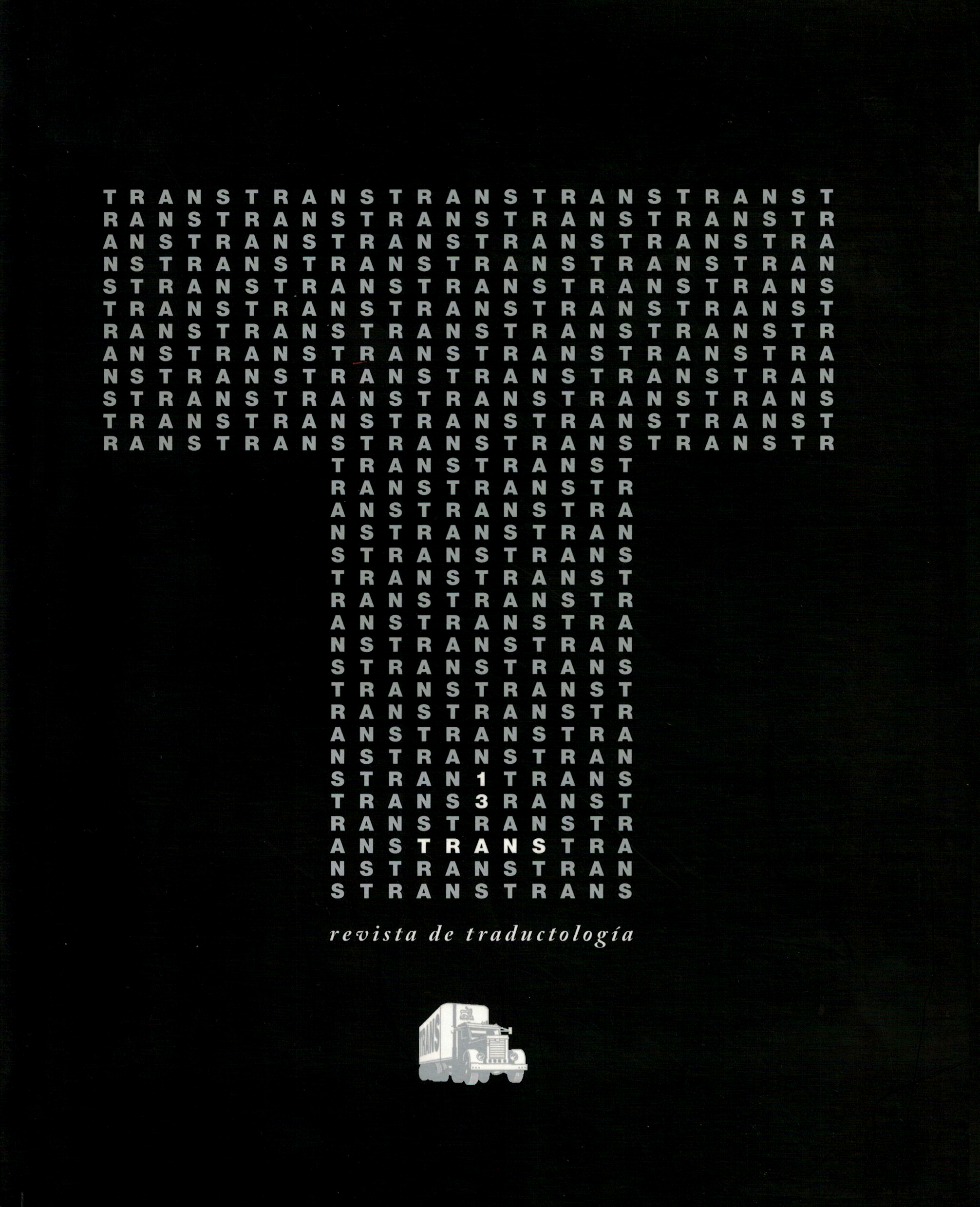Surtitling: Surtitles an other hybrid on a hybrid stage
DOI:
https://doi.org/10.24310/TRANS.2009.v0i13.3160Keywords:
sobretitulación, modalidad híbrida de traducción, teatro intermedial, transferencia intelingüística en escena, diversificación del público.Abstract
La sobretitulación es una forma de transferencia interlingüística que tiene lugar en escena cuando una producción teatral se desplaza. Consiste, además, en una modalidad híbrida de traducción entre la traducción propiamente dicha y la interpretación. Por ello constituye un campo de investigación novedoso y de gran interés en el ámbito de los Estudios de Traducción. En la actualidad el público ya está acostumbrado a la recepción de imágenes fragmentadas en escena. Esta forma híbrida de traducción se inserta en un teatro intermedial. Este trabajo trata sobre la sobretitulación en el mencionado contexto híbrido. La hibricidad es una característica específica de la sobretitulación que se puede presentar de muchas formas y con la que se tiene que trabajar en escena. El artículo muestra que la transferencia interlingüística lejos de ser simple, presenta complejidad, encuentra muchos escollos como es el caso de las dicotomías. Pero si el escollo se acepta como un reto, este formará parte de la puesta en escena y además puede suponer una forma de enriquecerla.
Downloads
Metrics
Publication Facts
Reviewer profiles N/A
Author statements
Indexed in
-
—
- Academic society
- N/A
- Publisher
- Universidad de Málaga
Downloads
Published
How to Cite
Issue
Section
License
All contents published in TRANS. Revista de Traductología are protected under the Creative Commons Attribution-NonCommercial-ShareAlike 4.0 International (CC BY-NC-SA 4.0) license. All about this license is available in the following link: <http://creativecommons.org/licenses/by-nc-sa/4.0>
Users can copy, use, redistribute, share and exhibit publicly as long as:
- The original source and authorship of the material are cited (Journal, Publisher and URL of the work).
- It is not used for comercial purposes.
- The existence of the license and its especifications are mentioned.
- ShareAlike — If you remix, transform, or build upon the material, you must distribute your contributions under the same license as the original.
There are two sets of authors’ rights: moral and property rights. Moral rights are perpetual prerogatives, unrenounceable, not-transferable, unalienable, imprescriptible and inembargable. According to authors’ rights legislation, TRANS. Revista de Traductología recognizes and respects authors moral rights, as well as the ownership of property rights, which will be transferred to University of Malaga in open access.
The property rights are referred to the benefits that are gained by the use or the dissemination of works. TRANS. Revista de Traductología is published in an open access form and it is exclusively licenced by any means for doing or authorising distribution, dissemination, reproduction, , adaptation, translation or arrangement of works.
Authors are responsable for obtaining the necessary permission to use copyrighted images.













21.png)
